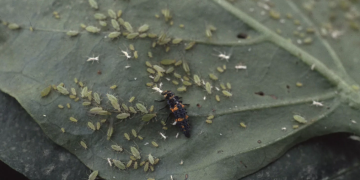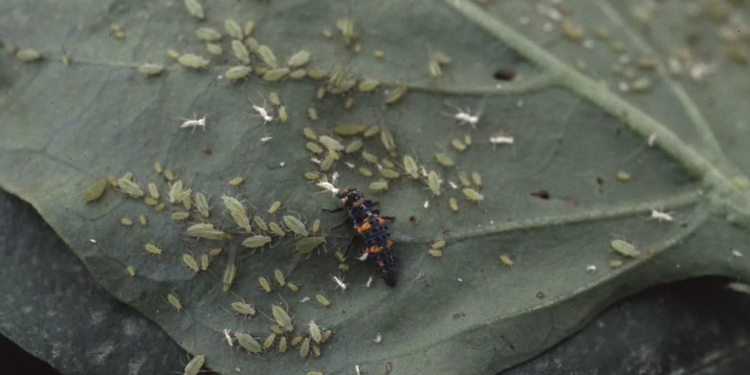#GardenPests #Aphids #AphisSpp #PlantDamage #BeneficialInsects #Insecticides #ControlMethods
Aphids, scientifically known as Aphis spp., are tiny garden pests that can cause significant damage to plants. These insects feed on plant sap, causing leaves to yellow, wilt, and eventually die. Moreover, aphids can transmit viruses that can further harm the plants. In this article, we will discuss the development and consequences of aphids, as well as some ways to combat them.
Aphids reproduce rapidly, and their life cycle can be as short as seven days. This means that they can quickly infest a garden and cause a lot of damage in a short period. One female aphid can produce up to 12 offspring per day, and these offspring can reproduce asexually. Thus, it is essential to control their population as soon as possible.
One way to prevent aphid infestation is to encourage beneficial insects, such as ladybugs and lacewings, into the garden. These insects feed on aphids and can help control their population. Another method is to use insecticidal soap or neem oil, which are effective against aphids but are safe for plants and beneficial insects.
However, it is crucial to avoid using broad-spectrum insecticides as they can harm beneficial insects and pollinators. Additionally, it is essential to monitor plants regularly for any signs of aphids and remove any infested leaves or branches immediately.
Aphids can cause significant damage to plants and should be controlled as soon as possible. Encouraging beneficial insects, using insecticidal soap or neem oil, and regular monitoring can help control their population without harming beneficial insects or pollinators.































